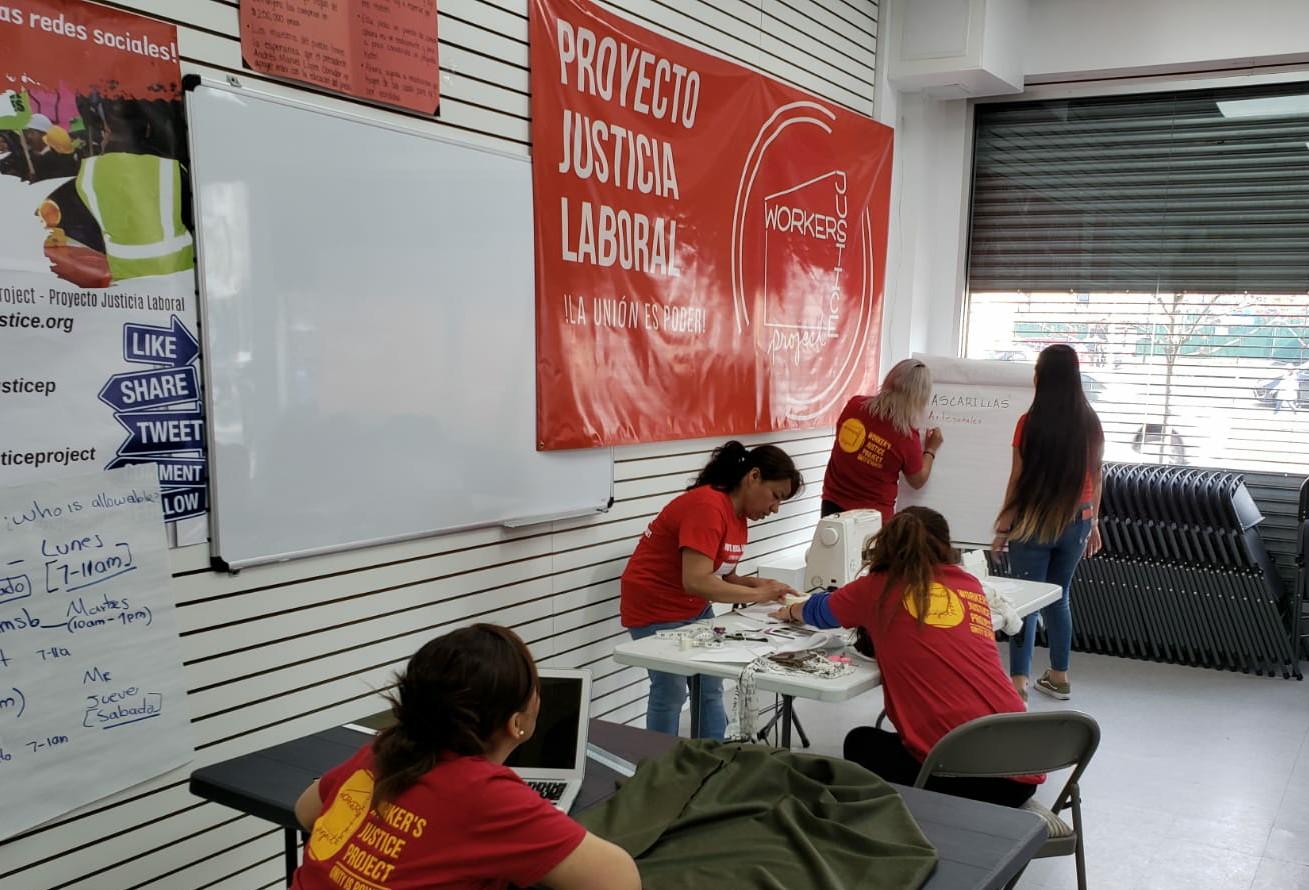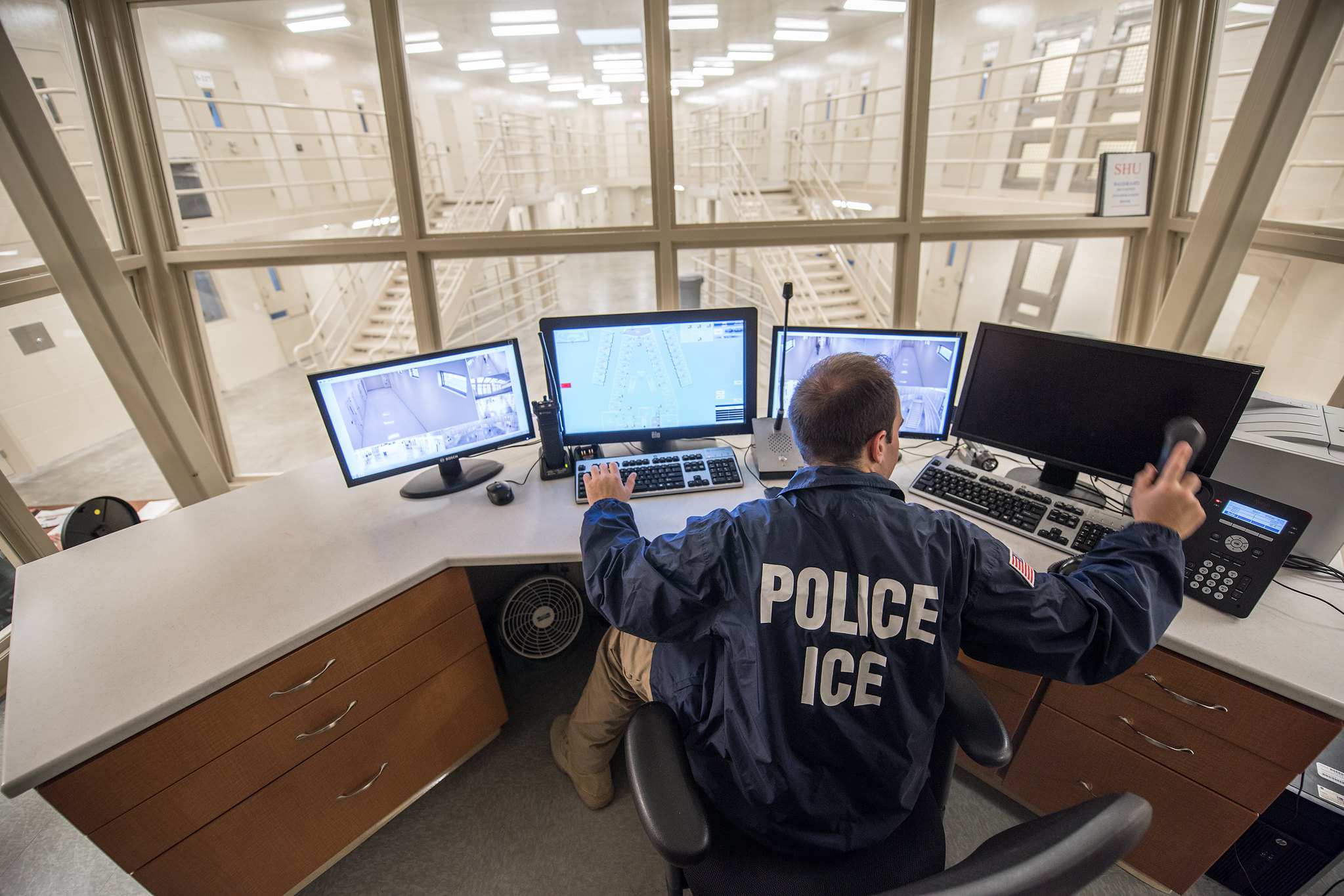On a recent Friday morning, Ligia Guallpa saw at least 40 workers on the ‘parada,’ a series of blocks along Marcy and Division Avenues in Williamsburg, where day laborers queue, waiting for work opportunities. The majority of the workers were elderly single mothers who had no choice but to work during the pandemic to feed their families.
“It is painful to know these people are putting their health and safety on the line for other New Yorkers and then these are the people not being given protection and help during the crisis,” Guallpa explained.
These are the workers on the frontline of the COVID-19 pandemic. The option of working from home is not available to domestic workers, who are now being employed to clean and disinfect worksites to make them safe for others. With little job security, many are opting to work with little to no protective equipment.
Guallpa is the Executive Director of Workers’ Justice Project (WJP), a worker’s center in Brooklyn that supports low-wage immigrant workers, many of whom are domestic workers. Domestic workers are defined as care workers, including nannies, house cleaners, or home health aides. WJP normally supports workers in multiple sectors, but the organization has shifted focus to cleaning workers as there has been a surge in demand for this work, as individuals and companies panic about the cleanliness of their buildings during COVID-19.
Guallpa said they typically receive a request for cleaning services about once a month; now, they receive four or more per week. The requests are mostly coming from individual apartments in Williamsburg as well as packaging warehouses, which also employ low-wage immigrants and are notorious for inhumane working conditions. Eight Amazon packaging warehouses, two of which are in New York City, have been sites of COVID-19.
Employers are not required to offer protective equipment to their workers. They also are not required to offer safety training on how best to clean an infected area.
“A lot of these employers are not being honest when we ask whether the area has been infected with [COVID-19],” Guallpa said. One cleaning worker asked if the area she was cleaning had been infected and the employer fired her, Guallpa said.
Another cleaning worker, Marta, is a single mother of four. She left Ecuador with her children less than a year ago. Marta and her family are undocumented, she does not speak English and has worked as a construction and cleaning worker since her arrival. She asked that Documented only use her first name due to fears around her status.
For the past month, Marta had been painting and cleaning a luxury condominium building in downtown Brooklyn. She did not sign a contract but was promised months of work. Marta was looking forward to her first paycheck, all of which would go towards feeding and supporting her family, but when she contacted her employer last week, they told her she had lost her job due to COVID-19 related closures. The company also refused to pay her the $2,380 worth of wages she had earned over the past month.
Marta’s employer has blocked her calls and messages. She is still owed her money.
Exploitation and wage theft have always been issues for domestic workers and particularly for those who are undocumented. According to Make the Road, $3.1 billion in wages are stolen from workers in New York every year. The desperation COVID-19 has incited, among both workers and employers, has led to an increase in labor abuses, according to leadership and members of three workers centers.
In New York, domestic workers are protected by the Domestic Workers’ Bill of Rights, a piece of legislation passed in 2010 that guarantees workers in this industry overtime pay, a weekly day of rest, three paid days of rest each year, leave for sick and safety purposes, and protections from sexual and racial harassment. However, the majority of domestic workers in New York are not hired full-time by a single employer nor are they working under contractual agreements, making them ineligible for the benefits delineated in the bill. Furthermore, the bill does not apply to undocumented workers, who are without any recourse or security net.
Assemblywoman Catalina Cruz of New York City’s 39th district knows from first-hand experience the precariousness of contract and informal work. Her mother was an undocumented domestic worker who cleaned homes. “When your income is dependent on something insecure, it can send your family into a spiral,” she said.
During this time, Cruz is encouraging people to donate and volunteer. Her district is home to the highest number of undocumented immigrants in New York, she says. Cruz’s office has transformed into a food pantry that has served over 7,000 meals in the past weeks, she said.
In the future, Cruz intends to revisit and revise the Domestic Workers’ Bill of Rights to be all-inclusive.
“As legislators, we will pass fantastic legislation not being able to know what might happen in the future. And as legislators it is our job to go back and revise laws to make sure they meet everyone’s needs,” Cruz said.
Advocates such as the National Domestic Workers Alliance are calling on Congress to include immigrants in stimulus packages such as the one signed by President Donald Trump on Friday.
“This virus is not going to discriminate based on immigration status and our policies shouldn’t either,” Julie Kashen, NDWA, senior policy advisor said. “The cost of Congress not doing more is very real in human terms.”
As part of the $2 trillion COVID-19 relief bill, Americans will be receiving $1200 checks. But, many of the workers served by WJP will not see any of that money. They will continue traveling the city, searching for jobs as the virus continues to grow.
“The current crisis is revealing how fragile our protections are for working people, especially undocumented immigrants,” Council Member Carlos Menchaca, Chair of the New York City Council’s Immigration Committee. Menchaca called for making relief available to anyone with a “discernible paycheck” or who pays taxes using an ITIN.
“It also means expanding unemployment, suspending rent, and extending Medicaid in case they lose their jobs,” he said. “Without these extensions, our claim to being a sanctuary city, or a place that draws its strength from immigrants, is disingenuous at best, and a cruel jest at worst.”
Two weeks ago a member of WJP tested positive for COVID-19. Concerned about the crowded apartment in which he and his family share with another family, he asked to be hospitalized. He was told to go home.
“The government is choosing to bail out businesses rather than the people on the frontline of the pandemic. We cannot run this city without these workers, ” Guallpa said.
Correction: An earlier version of this article spelled the name of Ligia Guallpa incorrectly. We apologize for this error.















